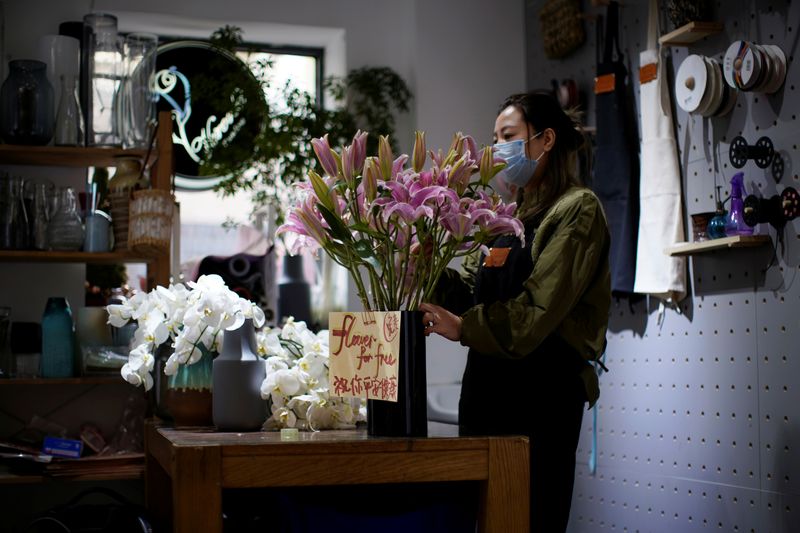By Cheng Leng, Sophie Yu and Keith Zhai
BEIJING/SINGAPORE (Reuters) - What is worrying Rao Yong more than the daily news updates of a virus outbreak gripping China is that he may soon have to shut his online handicraft store and tell the 1,400 craftswomen he employs he is no longer able to sell their work.
Rao, from eastern China's Zhejiang province, is among millions of small business owners feeling the ripple effects of the epidemic which has killed 490 people in China and infected over 20,000.
Businesses face widespread disruption as local governments order companies to extend their Lunar New Year holidays for at least another week and curtail transport links, while would-be customers stay home for fear of contagion.
Small and medium-sized enterprises (SMEs), already struggling for access to credit, are bearing the brunt of the pain. That's posing a further threat to China's economy, growing as it is at its slowest in three decades.
SMEs contribute more than half of China's tax revenues, two-thirds of the country's economic output and eight out of 10 urban jobs.
"It's having a huge impact on the business," said Rao, who buys embroidery from craftswomen in remote mountain villages. They can make about 2,000 yuan ($285) in a good month, he said.
But Rao can't receive or send the goods due to transport restrictions. "Now the logistics stopped because that requires human contact."
SOME EFFORTS
Beijing has injected more cash into the economy and ordered banks and local governments to help businesses cope, including extending loan payment dates or cutting borrowing rates.
Financial institutions have also pledged to lower rates for virus-stricken firms based in Hubei province, the epicenter of the outbreak, and more measures are under consideration.
Mall operators such as Dalian Wanda say they will temporarily waive rents and fees for commercial tenants nationwide.
But major losses due to business suspensions are not fully covered by existing insurance products, and some finance sector sources say many lenders were hesitant of increasing their exposure to SMEs.
"Lending out more also means shouldering more risks, we cannot cover every SME that is impacted," said one manager at a local commercial bank in eastern China, who requested anonymity as he's not authorized to speak to the media.
"After all, the decision will be varied case-by-case based on how much collateral they have."
AXE TO FALL
Other business owners told Reuters they may not have much time to wait for help or for public concerns over the virus to abate.
"Most of the SMEs like me cannot hold up too long," said Zhou Zhen, who owns a restaurant in Shanghai which was forced to close over the lucrative New Year season. She is considering laying off part-time staff because she is having trouble getting loans from banks.
"The axe will fall on us pretty soon."
Exporters like Zhao Zhenyu, executive director of Shenzhen Cham Battery Technology, had hoped for a better year ahead after Washington and Beijing reached an interim trade deal in early January, easing 18 months of tensions.
But his company, which makes battery parts for electric cars, is now grappling with the halting of operations and a labor shortage as many workers are unable to travel among efforts to stop the spread of the virus.
"There'll be a huge impact on staffing and orders from overseas," which he will struggle to fill, Zhao said.
Shanghai-based florist Wang Haiyan estimates she has already lost 10,000 to 20,000 yuan on unsold flowers as some clients canceled events or postponed weddings due to the outbreak.
How she will pay her rent, suppliers and the salaries of her eight employees is a big headache. If the situation carries on, Wang said she can hold up for at most six more months.
She is not optimistic for Valentine's Day either, saying she is considering preparing less flowers for the season.

"Valentines' Day is when florists make the most money. Now these hopes are dashed to pieces this year."